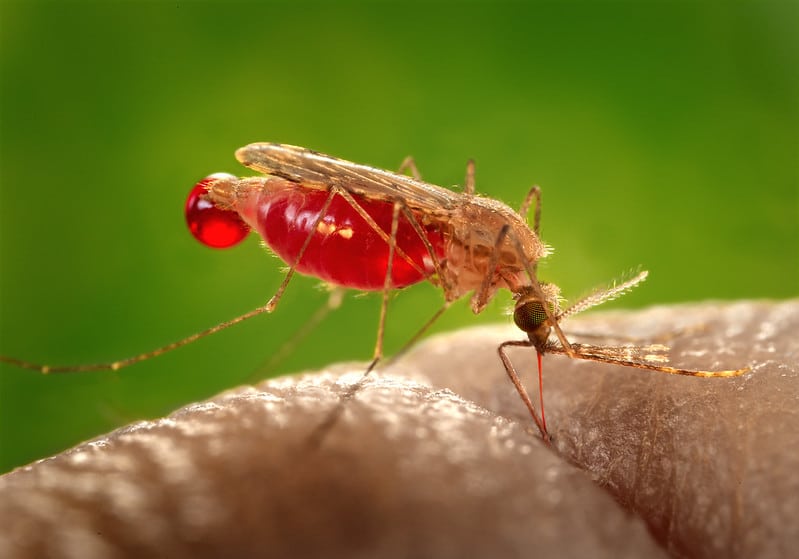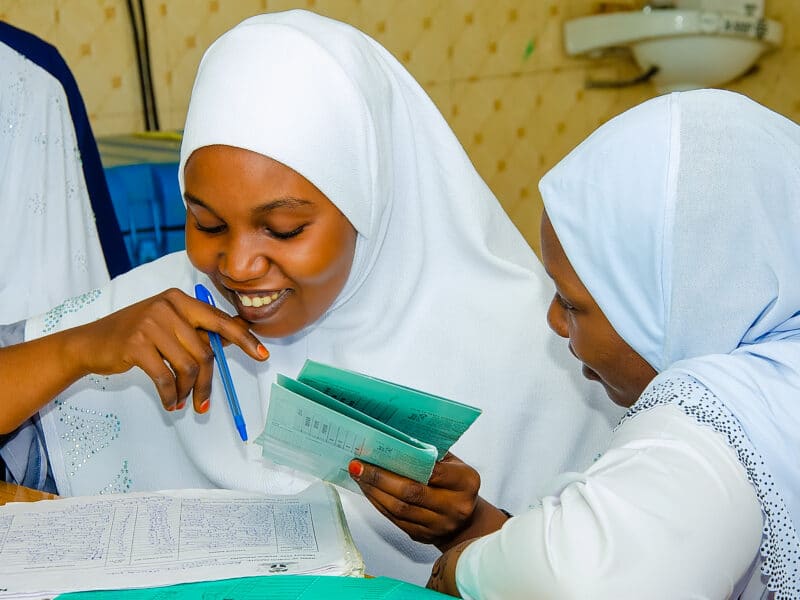Retail stores in Kenya stock mosquito control products such as mosquito coils, topical repellents and aerosol insecticide sprays, suggesting a market for affordable, easy-to-use and effective tools that prevent mosquito bites when people aren’t asleep under their insecticide-treated bed nets.
A survey of mosquito control products available in retail shops in Busia County in western Kenya was conducted by the Johns Hopkins Center for Communication Programs and the Kenya Medical Research Institute. It was published March 23 in Malaria Journal.
The goal was to understand the retail landscape for mosquito control products as part of the Unitaid-funded Advancing Evidence for the Global Implementation of Spatial Repellents (AEGIS) project, which is focused on evaluating a new spatial chemical repellent designed to be hung on the wall inside homes in regions where malaria is present.
“What we found is that consumers are clearly looking for and purchasing mosquito control products that are easy to use, can be used indoors and outdoors and provide protection outside of sleeping hours,” says CCP’s Danielle Piccinini Black, MBA, MPH, who led the study.
Roughly 70 percent of Kenya’s population is at risk for malaria. In 2019, an estimated 229 million cases and 409,000 malaria deaths occurred worldwide with 94 percent of the cases and deaths occurring in sub-Saharan Africa, according to the World Health Organization. Approximately three million cases occurred in Kenya in 2019.
Over the past two decades, malaria cases have fallen dramatically with much of the credit going to the use of insecticide-treated bed nets, the majority of which are provided at no cost in malaria-endemic areas by international donors. In Kenya, the government distributes insecticide-treated bed nets every three years in areas affected by malaria. Yet there are still gaps in the protection that nets can provide, including exposure to malaria mosquitoes in the evening hours before bed.
The AEGIS project will study the effectiveness of the Mosquito Shield, which passively releases a chemical called transfluthrin, the same compound found in mosquito coils. It resembles a clear envelope and is meant to hang on the wall to keep mosquitoes out of the surrounding area. In addition to demonstrating the efficacy of the product, the project aims to understand what factors will ultimately influence the use of such new products from both the user and market angles. AEGIS hopes to find that the Mosquito Shield will prove to protect against malaria and dengue.
The first step was the retail survey.
A total of 821 retail outlets – including small kiosks called dukas, hawkers, market stalls, pharmacies and supermarkets – were surveyed. Roughly one-third of outlets said they currently carried mosquito control products while a little more than half said they never had. Mosquito coils were the most commonly stocked (73 percent of outlets), followed by topical repellents and aerosol insecticide sprays. Nealy 97 percent of retailers that sold the products reported sales increased during long rains while 36.5 percent reported that sales also surged during short rains.
“Overall, retailers reported the profits from selling [mosquito control products] were adequate and they overwhelmingly planned to continue stocking the products,” the authors write.
While coils, topical repellents and aerosol insecticide sprays are the most common mosquito control products, Piccinini Black says that the presence of newer niche products on the store shelves – such as insecticide incense sticks, electric mosquito strikers, insecticide soaps and electrically heated insecticide mats – suggest consumer demand for other types of mosquito control products that meet consumer preferences could indicate demand for something like the Mosquito Shield.
Despite the popularity of mosquito coils, topical repellents and sprays, research on those products has focused on the reduction of mosquito bites, not malaria incidence. And yet, “consumers are still buying them,” she says. AEGIS is designed to focus on the effectiveness of Mosquito Shield against the disease itself.
AEGIS will be conducting research to better understand malaria prevention behavior and preferences for mosquito control products, which will complement the understanding of the retail component.
“We tend to look at the consumer side a lot,” Piccinini Black says. “We often forget that market side. Our survey made sure we wouldn’t forget to consider this important part of the mosquito control landscape.”
“A Retail Audit of Mosquito Control Products in Busia County, western Kenya” was written by Prisca A. Oria, Vincent Moshi, Julius I. Odero, Sheila Ekodir, April Monroe, Steven A. Harvey, Eric Ochomo and Danielle Piccinini Black.
Unitaid is a global health agency engaged in finding innovative solutions to prevent, diagnose and treat major diseases such as HIV/AIDS, malaria and tuberculosis.





